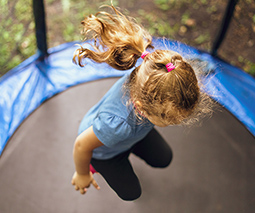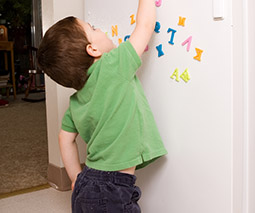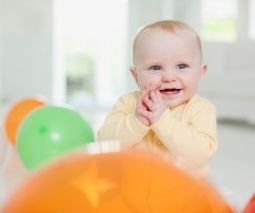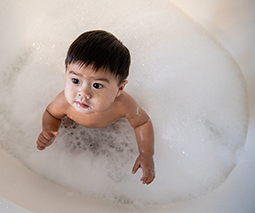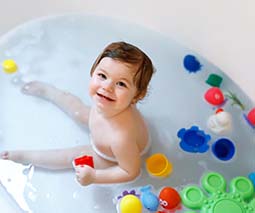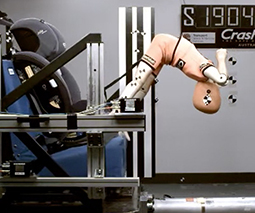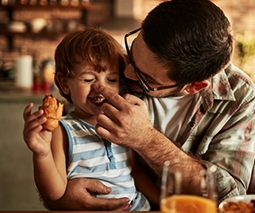How to keep kids safe from accidental poisonings and injuries at home
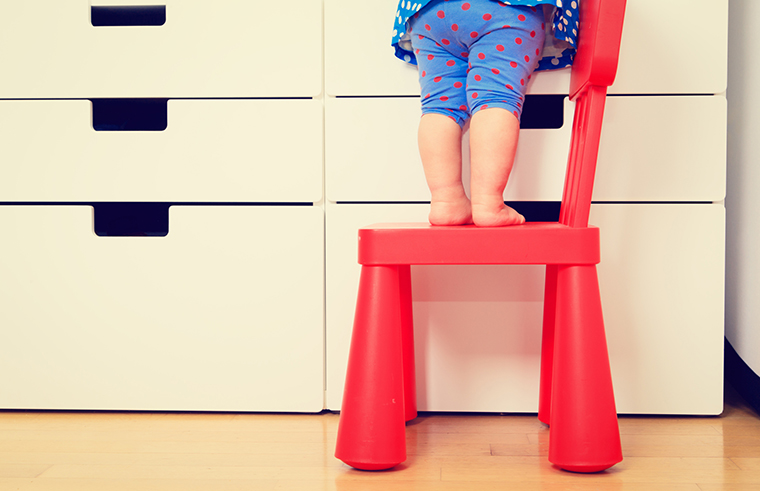
The home can be a dangerous place for kids. Each year in Australia alone, 150 children die from accidental injuries or incidents, and a further 60,000 are admitted to hospital. Even more tragic is the fact that most cases are preventable. We spoke to Kidsafe about what you can do to protect your little ones.
Household dangers
With young children, comes great responsibility. Being a parent is not for the fainthearted, especially when kids are small and potential danger is literally lurking around every corner. You can make sure the pool gate is kept closed, smother them in sunscreen, cut up their grapes and sneak veggies into their dinner – but sometimes it’s still not enough.
“On average we have three deaths a week from preventable injuries or incidents,” says Melanie Courtney, CEO of Kidsafe.
The key concerns
The main things to watch out for are poisons, burns and scolds (from hot cups of tea and coffee or stoves), batteries, medications and choking – blind cords is a big one. But even less common incidents, like driveway run-overs (which claim seven lives a year), are things every parent still needs to be wary of.
“In terms of hospital admissions, falls is the leading cause, so that could be something like a parent changing their baby on a change table and leaving them unattended for a second,” warns Melanie. “And that’s the message really; it only takes a split second for an accident or injury to happen, and yet they are in fact preventable.”
The toxic truth
In 2015, over 5,580 children in Australia were hospitalised from accidental poisoning, which usually happens when a child finds access to toxic cleaners and products in laundry or bathroom cupboards, unused medication or button batteries from car keys, remote controls, toys or gadgets.
“The Poisons Information Centre is an amazing resource if your child has ingested batteries or something else poisonous,” says Melanie. “Even if you’re not sure, you just give them a call, they’re there 24/7 and they will provide you with advice whether it’s to get them to emergency or not.”
Kidsafe’s tips for avoiding accidental poisoning:
- Put all medicines including your own and your children’s, out of reach and out of sight in a locked cupboard at least 1.5m above the ground.
- Safely store medicinal-type products that could still be harmful such as nappy rash cream, vitamins or eye drops.
- Choose child-resistant caps for medicine bottles if you’re able to, however do note that child-resistant does not mean child-proof – many children will still be able to open these bottles.
- Check the expiry dates and simply return all old or unwanted medicines lying around your home to your local pharmacy – they will then be disposed of via the free government-funded initiative, the RUM (return unwanted medicines) project.
Baby-proofing is essential
So short of wrapping children in cotton wool, what can we do?
Melanie has two young children herself and admits it’s really challenging to keep an eye on them 24/7. The best tactic she therefore recommends is to be diligent about making sure the house is as safe as possible.
“There are so many things that can happen so it’s crucial to go over the whole house before anything happens; don’t wait until you have an incident,” she urges. “Do it straight away – secure those bookcases and things to the wall, secure the blind cords, remove unused medicines, make sure handbags are always out of reach – these are important habits to get into.”
She also recommends taking safety precaution measures for those moments when you do need to leave your child’s side.
“It doesn’t replace adult supervision but you could also create a secure play area that you know children can be in with no risk of anything happening,” she suggests. “It can be a really tough job being a parent and you don’t have eyes in the back of your head.”
Prevention is the key when it comes to avoiding accidents and injuries with children. In the event of an emergency, or if you are at all concerned, call 000.
